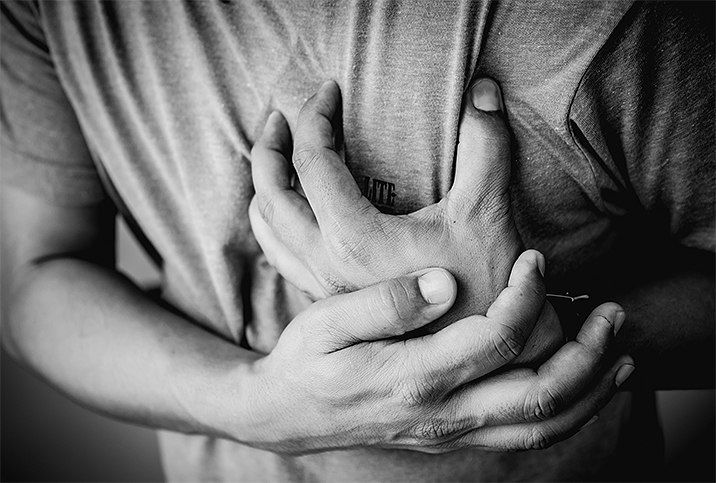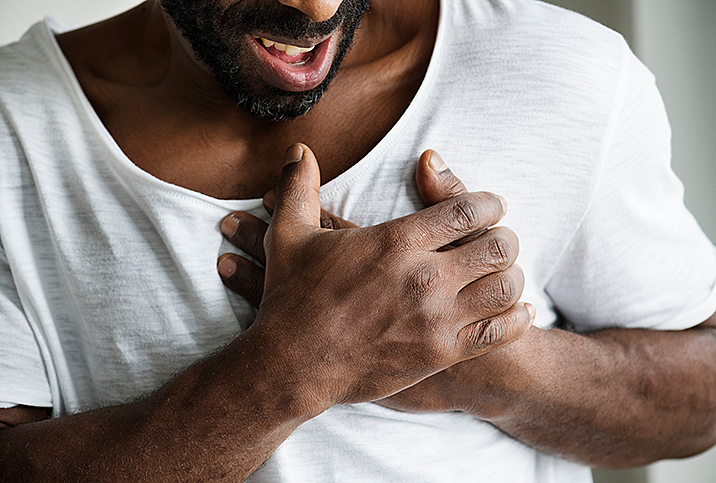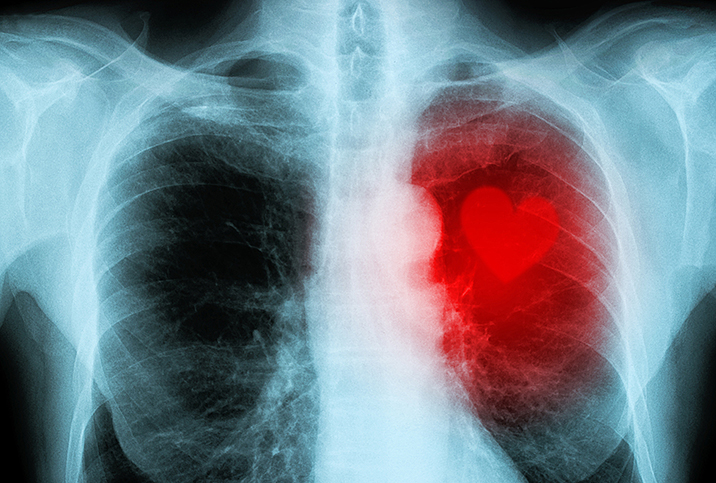Should You Really Be Having Sex After a Heart Attack?

Every year, more than 600,000 people in the United States experience their first heart attack, according to the Centers for Disease Control and Prevention (CDC).
After that, life changes in an instant.
Depending on the cause and severity of the heart attack, healthcare providers may advise changes to diet and exercise regimens. Most people face an array of new medications, with some temporary and others permanent. However, with time and lifestyle changes, many survivors go on to live active and satisfying lives, including satisfying sex.
For most cardiac patients, resuming sexual relations is encouraged.
"Sexual activity and satisfaction are important indicators of quality of life for many people," said Ernst von Schwarz, M.D., Ph.D., a cardiologist and the director of the Heart Institute at the Southern California Hospital at Culver City. "Resuming sex as soon as it is safe can be a vital part of recovery."
One study, published in 2020 in the European Journal of Preventive Cardiology, revealed that resuming—and increasing—sexual activity within six months of having a heart attack was associated with a 35 percent lower risk of death.
"Sex provides emotional and physical benefits," said Joel Kahn, M.D., an integrative cardiologist and the founder of the Kahn Center for Cardiac Longevity in Bingham Farms, Michigan. "Resumption of sex after a heart attack indicates optimism, a reasonable cardiac reserve and often, a supportive partner. These all benefit long-term recovery."
Taking it slow
Getting sexually aroused does not pose a threat following a heart attack, and neither does an orgasm. But how soon a person can tolerate the physical demands of sexual activity depends primarily on the seriousness of their cardiac event and their general fitness. Most medical literature indicates that once you can climb two flights of stairs comfortably, you can begin to resume intimate relations.
"There are small heart attacks where discharge is in 24 to 48 hours, and there are large and complicated heart attacks that might require hospitalization for a week or more and even require bypass surgery," Kahn said. "The former group can probably resume sex within two weeks. The latter may need four to six weeks or more."
No matter the length of time, it's advised to resume activity gradually. Here are tips from experts for resuming sexual activity:
- Starting with cuddling sessions is fine.
- Find a comfortable position and ask your partner to take a more active role. Many physicians recommend missionary or sitting positions or those that keep pressure off the patient's chest.
- If you have eaten a heavy meal, wait two hours before initiating sex.
- Choose a time when you're rested and relaxed, start slowly and let intimacy build before beginning intercourse.
- Ensure the room and bed are warm.
Signs you may need to slow down
Any indications that the heart is working extra hard are signs you should reduce the intensity or stop activity altogether.
"Most movement or exercise of any kind will cause mild shortness of breath if a person has been inactive for a while," von Schwarz explained. "But significant palpitations or shortness of breath means you must stop."
According to Kahn, additional indicators include angina chest pressure, the need for nitroglycerin pills and lightheadedness.
"Any patient who experiences these symptoms should discuss them with their healthcare team," he advised.
Barriers to sex
Unfortunately, physical and emotional readiness don't guarantee an easy return to intimacy for many heart attack survivors.
"Patients are usually placed on several medications to prevent a recurrence. And all of them have side effects," von Schwarz said. "For instance, diuretics and blood pressure medication can impact sexual function or worsen erectile dysfunction in men dealing with the issue."
Depression could follow a heart attack, causing a lack of interest in sex. Furthermore, antidepressants that might alleviate depressive feelings can impede sexual function.
"All of these issues should be part of the discussion with your medical team about resuming sex," Kahn said. "Ask if the medications you were sent home with might make it more difficult to perform and if there are possible alternatives that have less of an impact on sexual function."
Men should also ask if medications such as sildenafil (brand name: Viagra) and tadalafil (Cialis) are permitted or contraindicated. As always, proceed with caution when using drugs.
"If a person is using nitroglycerin at home to control chest pain, they should not take it if they have taken a drug like Cialis recently," Kahn said. "The combination can cause a serious drop in blood pressure."
Women left behind
Unfortunately, there is far less data on how a heart attack impacts sexual desire and function in women.
"Dysfunction is mainly a vascular issue," von Schwarz explained. "If there is anything impeding blood flow to the genitals, it's certain to have an impact on the ability to become aroused and overall [sexual] function—for women as well as men."
The lack of data on women is not specific to sexual function. A recent report by the American Heart Association stated women continue to be underrepresented in heart disease research. Shortcomings exist in virtually every aspect of study, from how basic science is conducted to how women receive care, even though heart disease is the leading cause of death in women of all ages, races and origins.
When preparing to return to sexual activity after a cardiac event, healthcare professionals emphasize the importance of communication with your partner(s) and your medical team. Be sure to ask medical professionals about warning signs that you may be overdoing it and possible drug interactions. Discuss your feelings about reigniting your sex life with your partner.
"Sex is a mind game in part, and the emotional closeness is important to full and meaningful recovery for men and women," Kahn said. "That is like the most powerful medication on the planet—and much more fun."


















